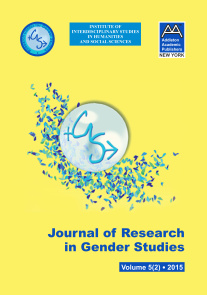CHILDREARING IN AUSTRIA: WORK AND FAMILY ROLES
CHILDREARING IN AUSTRIA: WORK AND FAMILY ROLES
Author(s): Isabella Buber-EnnserSubject(s): Social Sciences
Published by: Addleton Academic Publishers
Keywords: gender policies; gender mainstreaming; Austria, OECD; family and work; parental leave
Summary/Abstract: OECD regularly carries out surveys in its member states to assess their recent economic performance. For the preparation of the 2015 survey focusing on gender mainstreaming of family and work arrangements in challenging times, I summarized insights from empirical research for Austria which was provided to the OECD team and constituted a major input for the economic survey on Austria. The key messages can be summarized as following: in Austria enrolment in childcare at age 0–3 remains comparatively low, but has been increasing rapidly after 2007. Huge regional differences in enrolment and accessibility of full-day early childcare exist. A combination of mothers’ part-time labor participation and fathers’ full-time employment has emerged as a new dominant model of parents’ labor participation across all education groups. Austrians are particularly aware of fathers’ presence and active role in childrearing. Regarding attitudes towards employment of mothers with pre-school children, Austria holds a medium position in Europe, with large differences between women and men. Focusing on possible consequences of gender differences on fertility, research suggests that depressing effects may be expected only if these are also perceived as gender inequalities (i.e., as being unfair or unjust). Regarding fertility and family size, childlessness is comparably high in Austria, and exceptionally high among tertiary educated women and scientists. Key obstacles for the female researcher are time structures of work, temporary contracts and personal obstacles. Concerning family policies and public spending on families, cash supports are comparably high in Austria, spending on services and tax measures low. This unique combination supports traditional gender roles in the country. pp. 121–146
Journal: Journal of Research in Gender Studies
- Issue Year: 5/2015
- Issue No: 2
- Page Range: 121-146
- Page Count: 26
- Language: English
- Content File-PDF

